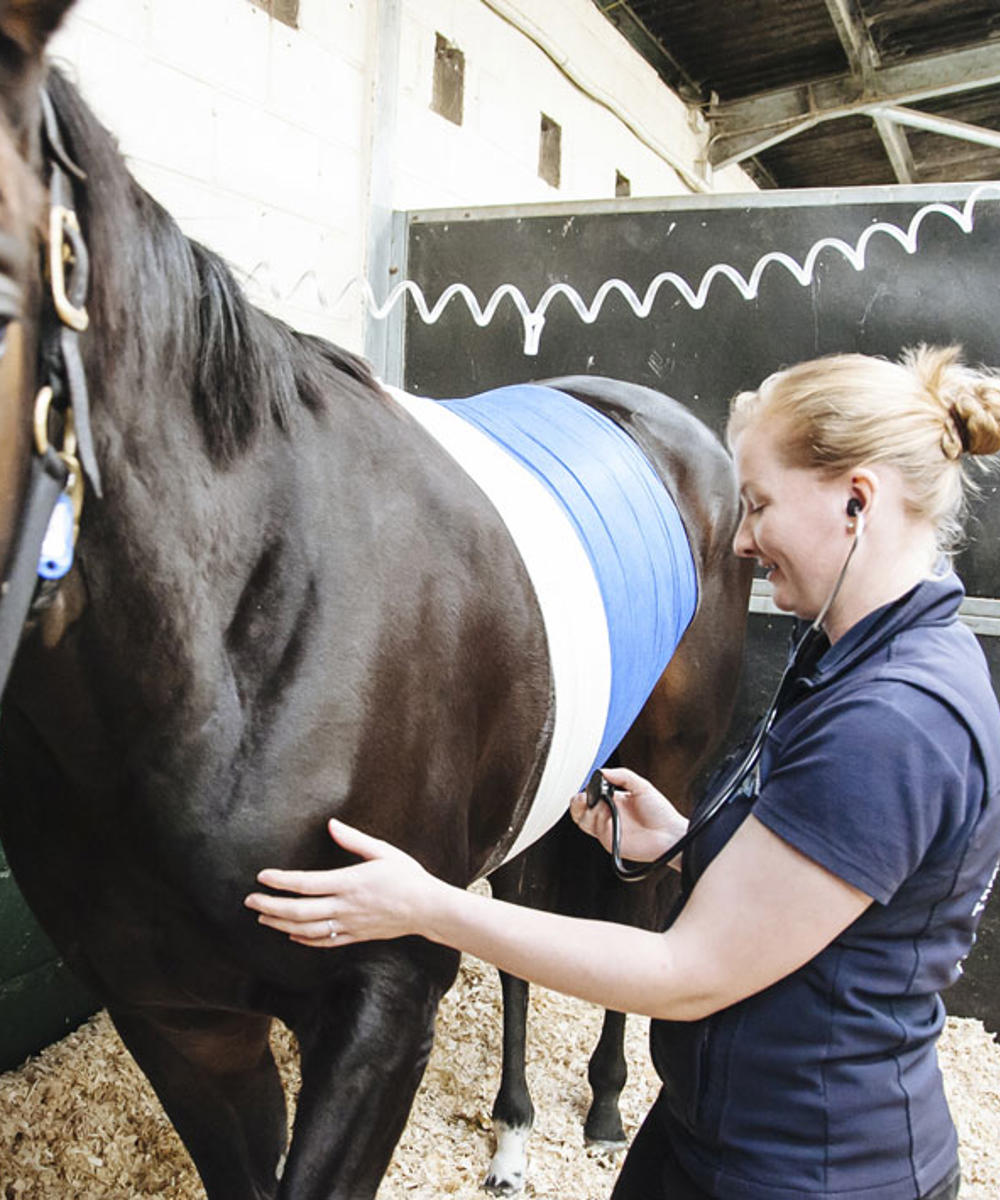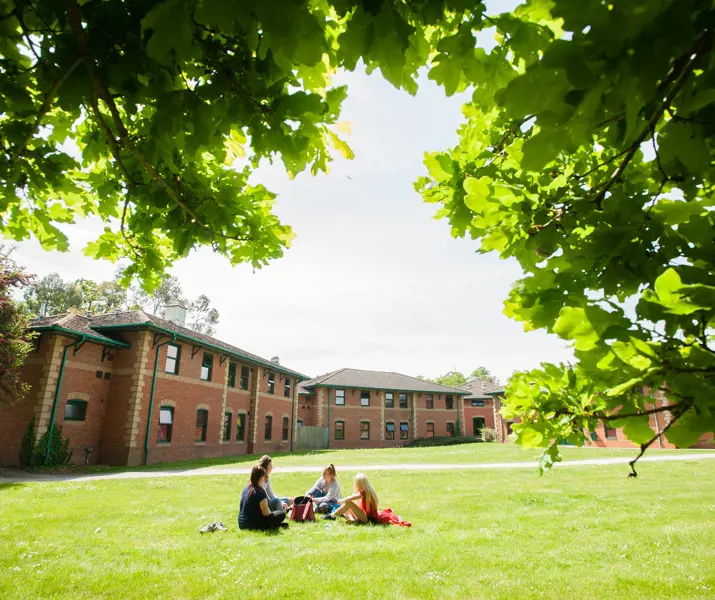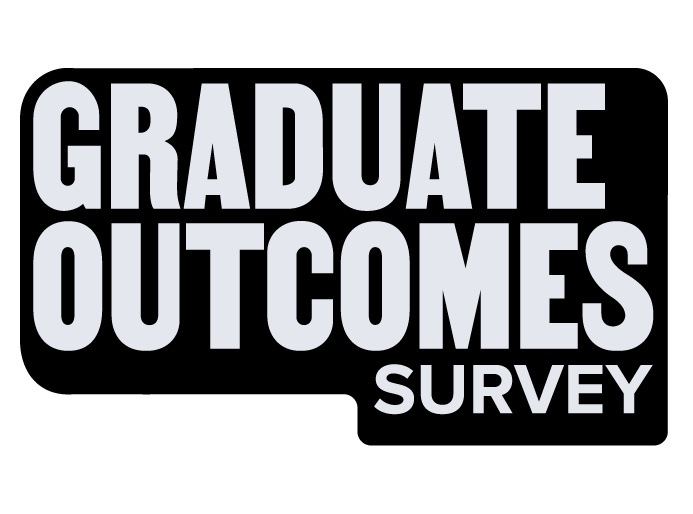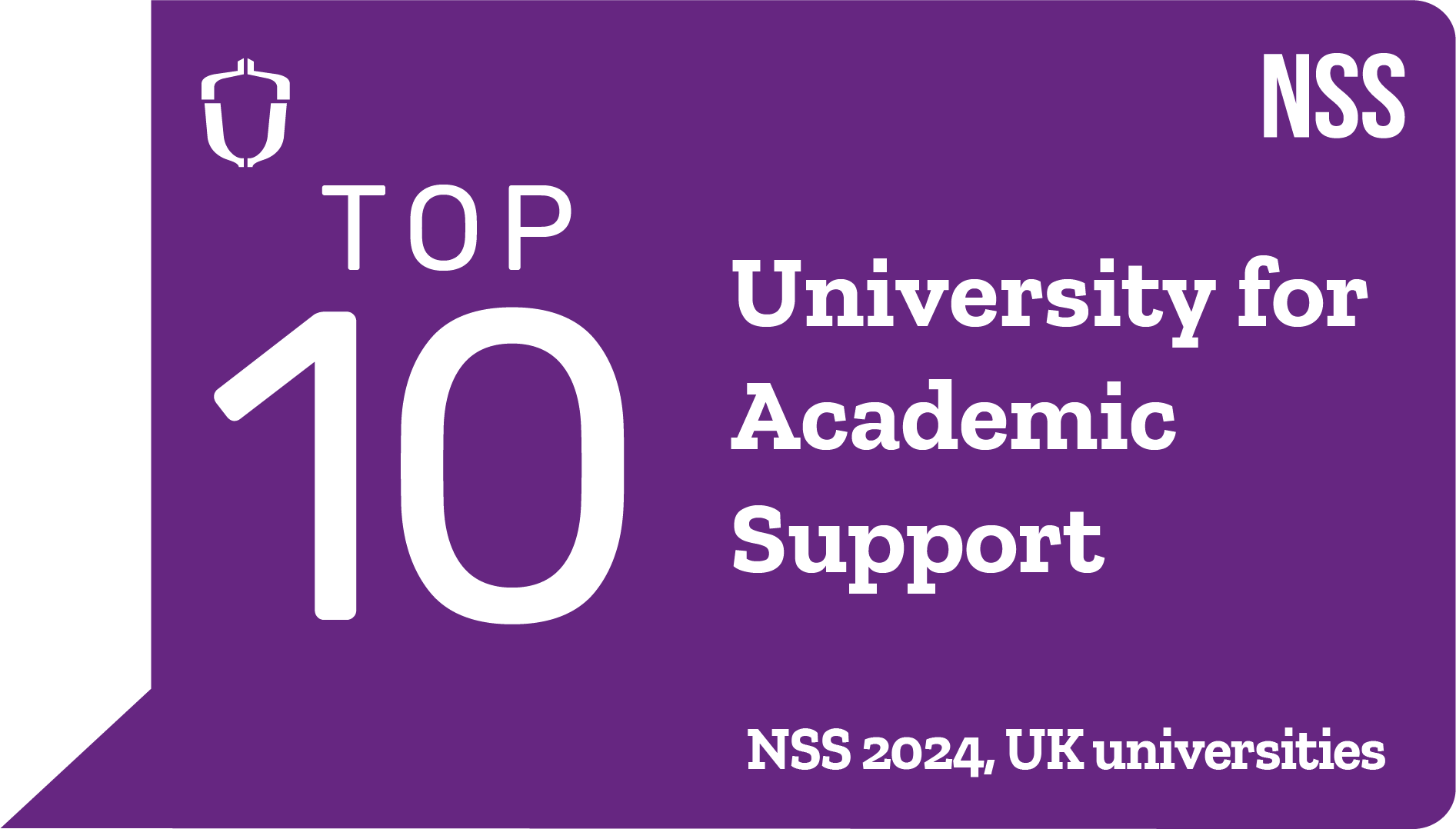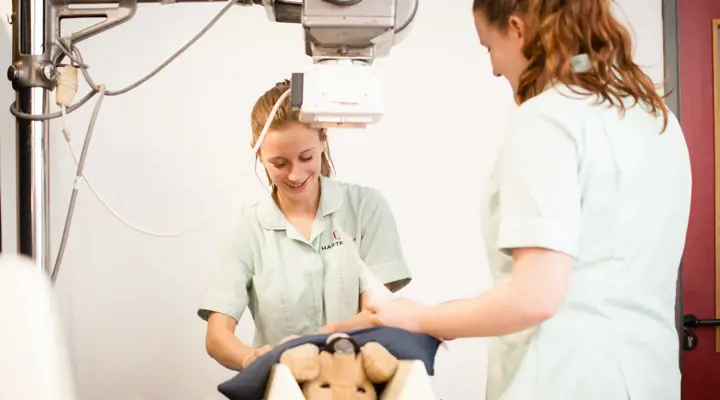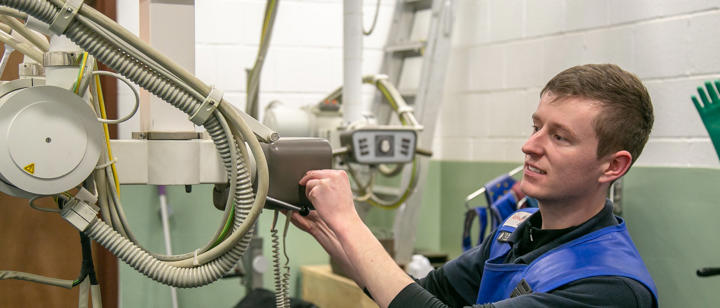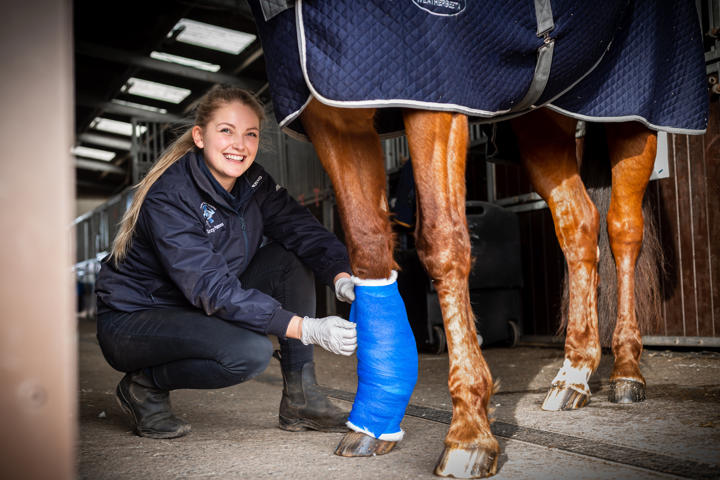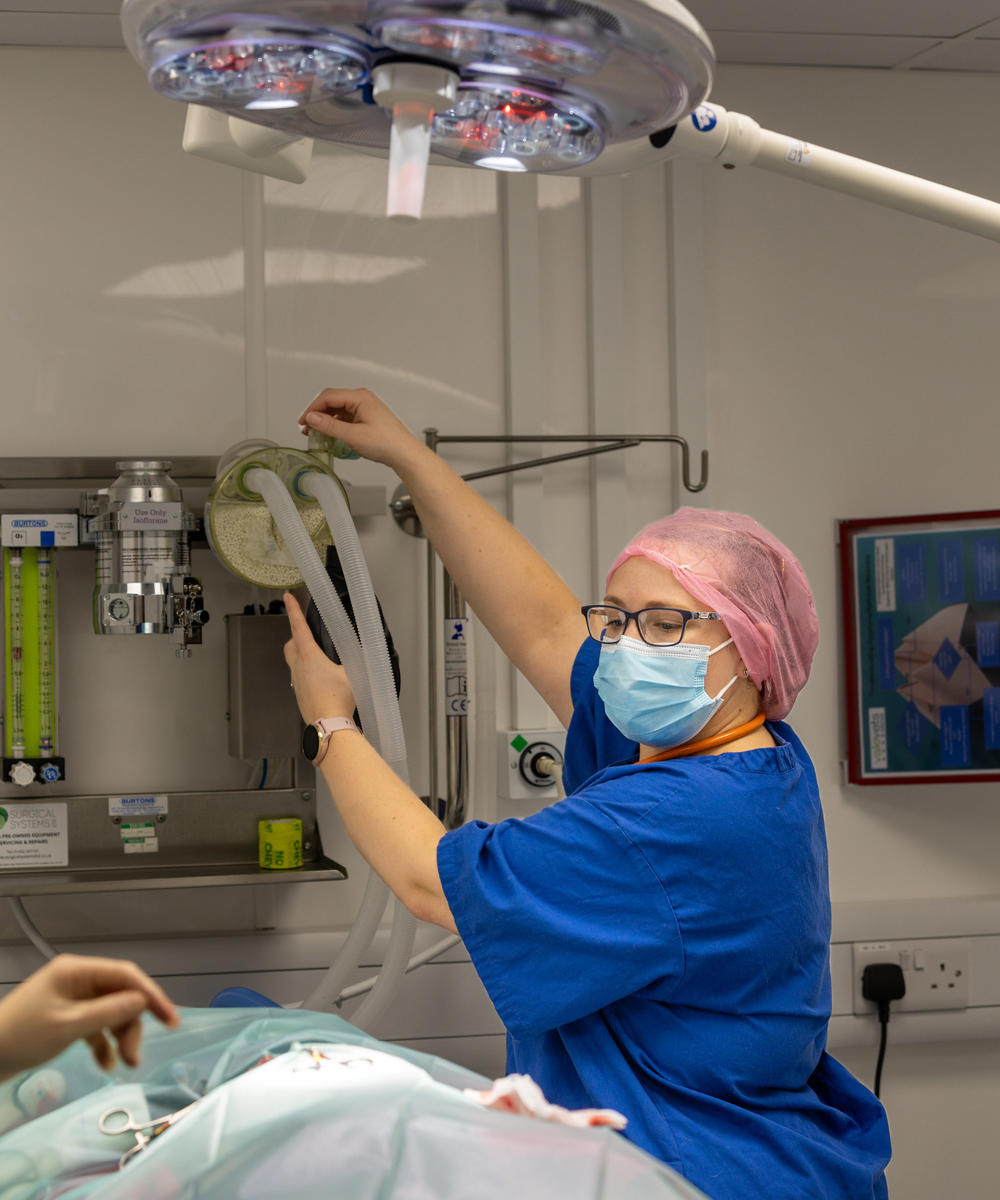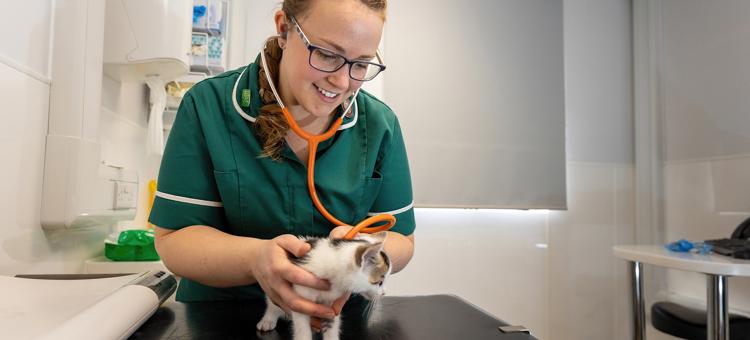Industry opportunities
In your second year, you’ll complete veterinary practice-based learning (currently 1,800 hours) in an approved RCVS veterinary nursing training practice. This will allow you to develop clinical skills ready for qualifying. We have excellent partnerships with local and national practices.
This course is ideal for those who are passionate about working as a Veterinary Nurse whilst improving industry practices through evidence-based research.
Royal College of Veterinary Surgeons accreditation
This course is accredited by the Royal College of Veterinary Surgeons (RCVS). This means that, on graduation, you may be eligible to apply to join the RCVS Register of Veterinary Nurses and practise as a Registered Veterinary Nurse. On joining the course, you’ll need to enrol as a Student Veterinary Nurse with the Royal College of Veterinary Surgeons (RCVS).
Self-assessment form
Becoming a veterinary nurse requires a diverse set of skills that goes far beyond a passion for animal care. This self-assessment aims to help you reflect on the range of competencies needed for this profession, from organisational skills and attention to detail to resilience in high-pressure environments. By evaluating your strengths and identifying areas for growth, you can determine if this rewarding, yet demanding career is the right path for you.
Self-assessment tool
-
UCAS | 96-112 UCAS tariff points, to include Biology.
-
A-Level | CCC-BBC or equivalent from at least two full A Levels. This must include Biology at grade D or above.
-
Vocational Award | MMM-DMM in an Extended Diploma in a relevant subject.
-
Access | 96-112 UCAS tariff points in an Access to Higher Education Diploma. This must include nine level 3 credits at Merit or above in Biology.
-
IB | 96-112 UCAS tariff points in an IB Diploma, from at least two Highers at H4 or above. This must include Biology.
-
Scottish Highers | 96-112 UCAS tariff points from at least two Highers, to include Biology at C or above. You must have completed two years study at Higher Level.
-
Irish Leaving Certificate | 96-112 UCAS tariff points from at least two Highers, to include Biology at H3 or above.
-
T Level | An overall grade of Distinction, to include grade C or above in the Core component in a Science subject. T Level subjects considered are Animal Care and Management (Science Pathway), Healthcare Science and Science. Health will be considered on an individual basis.
Successful students will need to have obtained at least 10 days of work experience in a UK equine veterinary practice or have completed all of the skills in the Veterinary Nursing Work Experience Logbook for the BSc (Hons) Equine Veterinary Nursing pathway. If you also apply for the BSc (Hons) Veterinary Nursing programme, then you are required to complete both sets of logbook skills.
You would also need to successfully complete our Fitness to Practise Process. In the case of international applications, we will require a NARIC equivalency certificate.
In addition to the above, we require a minimum of five GCSEs at grade 9-4 (A*-C), to include English, Maths and a science. We will consider equivalencies including but not limited to Irish Ordinary level, National 5s, IB standard level.
An IELTS level 7.0 English qualification with 6.5 in each element, is expected for international applicants without a GCSE Grade C or above (or 9 to 4 where numeric grades are being awarded) in English Language.
We will consider combinations of level three qualifications.
We welcome applications from individuals with equivalent, non-UK qualifications and mature students (over 21). We may interview as part of the application process.
The minimum academic entry requirement for this programme is 72 UCAS tariff points, providing this is combined with relevant experience.
Email us
Your support network
You'll benefit from a strong support network from day one to be the best you can be. This will range from your personal tutor and specialist academic support team (our Achievement and Success Centre) to dedicated wellbeing and employability (Innovation, Careers and Enterprise) centres.
Academic support
You’ll have your own personal tutor while you’re here who will support you to succeed in your studies. You’ll also have access to our academic and wellbeing support teams who run regular workshops and one-to-one sessions on campus and online.
Alongside this, we have a comprehensive bank of online study skills resources to help you make the most of your qualification.
Your learning experiences
You'll experience a range of teaching methods to strengthen your digestion of topics, including lectures, workshops and practical sessions as part of many courses.
Your career
Each year of your course will be made up of two semesters, within which you’ll study compulsory modules on different industry-focused topics, enabling you to develop your own unique portfolio of knowledge, skills and experience, ready for your career.
The course is taught in English.

